This article was medically reviewed by Erik Kramer, DO, MPH. Dr. Erik Kramer is a Board-Certified Primary Care Physician at the University of Colorado. With over 15 years of experience, his clinical interests include obesity and weight management, diabetes care, and preventive care, as well as embracing a holistic approach to primary care. He received his Doctorate in Osteopathic Medicine (D.O.) from the Touro University Nevada College of Osteopathic Medicine and completed his residency at Central Maine Medical Center. Dr. Kramer is a Diplomate of the American Board of Obesity Medicine.
There are 18 references cited in this article, which can be found at the bottom of the page.
This article has been viewed 153,405 times.
Watching a loved one fall victim to the ravages of Alzheimer's disease or other forms of dementia can be heartbreaking. Dementia is a term used to describe a set of symptoms that impair daily functioning and affect memory, thinking, and social abilities.[1] Nearly 11% of dementia is considered potentially reversible. Potentially reversible dementias are more likely to be seen in patients younger than 65 years old. Depression, hypothyroidism, and B-12 deficiency are some potentially reversible causes of dementia.[2] There's no cure for dementia, but there are treatments that may help with its symptoms. Knowing the signs of dementia's approach can be a blessing because when you know what the future holds, you can make plans to help a loved one deal with its effects.
Steps
Observing the Signs of Dementia
-
1Check the person’s memory and cognitive abilities using a simple test. Dementia sufferers may have difficulty remembering recent events or familiar routes and names. They may also forget important pieces of information, such as the concept of numbers. Your loved one can take a simple test to determine if they might be suffering from memory loss, such as the Saint Louis University Mental Status exam, which consists of a series of simple questions that a healthcare professional can use to gauge a patient’s mental status.[3] Another option is the Montreal Cognitive Assessment, which is another simple test that healthcare professionals can administer to assess patients.[4]
- Note that only a trained healthcare professional should perform evaluations of a person’s mental status.
- Everyone’s memory is different, and occasional forgetfulness is common among the general population. Family members and close friends typically will be the best judges of changes in behavior from what a person was like previously.
- If memory loss reaches a point where it interferes with day-to-day activities, take the individual to see his or her doctor for more evaluation.
-
2Watch for signs of normal memory loss versus abnormal loss. As a person ages, it is not uncommon to have some problems with memory. An older individual often has a lot that they have experienced, and the brain may not work quite as efficiently as it did in their younger years. However, when memory loss starts to impact daily life, that is when intervention needs to happen. The early signs are different for different people. But common signs include:[5]
- Inability to care for self: not eating, eating too much, not bathing, dressing inappropriately, not leaving the house, "wandering" behavior.
- Inability to maintain household chores: Dishes are chronically dirty, garbage not taken out, cooking "accidents", filthy house, wearing dirty clothes.
- Other "odd" behavior: Calling loved ones at 3 a.m. and hanging up, odd behavior reported by others, emotional outbursts when nothing outward seems wrong.
Tip: Be aware that forgetting certain things is normal. There is a big difference between forgetting when a daughter graduated high school, and forgetting the name of the daughter.
Advertisement -
3Look for trouble doing tasks they used to do easily. Dementia sufferers may forget to serve the meal they just cooked or forget they cooked it in the first place. People with dementia may have difficulty with other daily tasks such as putting on clothing. Generally, look for obvious declines in daily hygiene and dressing habits. If you notice the individual is having increasing difficulty with these common daily tasks, consider seeing your doctor for further evaluation.
-
4Take note of problems in using language. It's normal for people to fumble for the right word. But, dementia sufferers often get flustered when they can't find the right word. This may cause them to blow up at the person they're talking to, which can be frustrating to both parties.
- Changes in language usually begin with difficulty remembering words, sayings, and expressions.
- It will progress to a decline in ability to understand other people's language.
- Eventually, the person may be unable to communicate verbally at all. At this stage, people communicate only by facial expression or gesture.
-
5Note signs of confusion. People with dementia often suffer from confusion about spatial, time, and temporal contexts. This is more than simple memory loss or "senior moments" — spatial, time, and temporal confusion show an inability to understand where the person is in the moment.[6]
- Spatial confusion may cause dementia sufferers to forget directions, thinking north is south and east is west. Or that the way they just came is a different route. They may wander off, then forget how they got to a place and how to return to where they belong.
- Time disorientation is marked by the performance of behaviors at inappropriate times. This might be subtle, like slight changes in eating or sleeping schedules. But it can also be more significant: an individual might eat breakfast in the middle of the night and then get ready for bed in the middle of the day.
- Place disorientation may cause confusion about where sufferers are, causing them behave inappropriately. A person may think the public library is their living room and be angry about people invading their home.
- They may find it hard to perform common tasks outside of their home due to spatial disorientation. This can be very dangerous, as the individual cannot navigate environments beyond the home.[7]
-
6Do not ignore misplaced items. It is common to misplace the car keys in one's pants pockets, for instance. Sufferers of dementia often place objects in locations that do not make sense.
- For example, they may put a purse in the freezer. Or the checkbook ends up in the bathroom medicine cabinet.
- Be aware that a person with senile dementia may defend or deflect from this line of logical reasoning, arguing why it makes sense. Be very careful not to try to get into an argument at this point, as you will be unlikely to convince him or her, and agitate the person. He or she is in denial, and is trying to defend from the truth because it is terrifying. It is safer to focus on you as a target than face the truth.
-
7Watch for changes in mood or personality. While people may get moody from time to time, dementia sufferers may have sharp, rapid mood swings. They can go from giddily happy to blazing mad in minutes, or they may become generally irritable or paranoid. Dementia sufferers are often quite aware that they're having problems with common tasks, and this can be frustrating. This sometimes results in outbursts of irritability, paranoia, or the like.
- Again, avoid upsetting the individual even further by getting angry, as this is counterproductive to both people.
-
8Check for signs of passivity. The person may no longer want to go to places they used to go, take part in activities they used to enjoy, or see the people they used to see. As day-to-day activities become more difficult, many individuals may become more and more withdrawn. Instead, they may settle into depression, unmotivated to do anything inside or outside of the home.
- Notice if the person spends hours sitting in a chair and staring into space or watching television.
- Look for declining activity, poor hygiene, and problems with common day-to-day activities.
-
9Compare the current behavior to what you know of the person. Dementia requires a "constellation" of erratic and noticeably declining behaviors. No one indicator is enough for a diagnosis. Just forgetting things doesn't necessarily mean someone has dementia. Look for a combination of all the symptoms listed above. The better you know the individual, the easier it will be to notice changes in their usual behavior.
Confirming the Signs
-
1Familiarize yourself with some types of dementia. Dementia is a widely varying condition, and it will look different from patient to patient. In large part, you will be able to predict how the patient will progress by taking the cause of the dementia into consideration.
- Alzheimer’s disease - dementia progresses gradually, usually over the course of years. The exact cause is unknown, but plaques and structures called neurofibrillary tangles have been found in the brains of Alzheimer’s patients.
- Lewy body dementia: protein deposits, called Lewy bodies, develop in nerve cells the brain and cause a decline in thinking, memory, and motor control abilities. Hallucinations may also occur, and lead unusual behavior like talking to someone who isn’t there. This may be related to Parkinson’s disease. Dementia of Parkinson’s usually begins 5 to 8 years after the onset of Parkinson’s symptoms.[8]
- Multi-infarct dementia: dementia occurs when a patient suffers many strokes that block a brain artery.[9] People suffering from this type of dementia may have symptoms that stay the same for awhile and then get worse as they have additional strokes.[10]
- Frontotemporal dementia: portions of the frontal and temporal lobes of the brain shrink causing personality changes or the ability to use language. This type of dementia tends to occur between the ages of 40 and 75.[11]
- Normal Pressure hydrocephalus: a buildup of fluid puts pressure on the brain, causing dementia that comes gradually or abruptly, depending on how fast the pressure increases. A CT or MRI will show evidence of this type of dementia.
- Creutzfeldt-Jakob disease: this is a rare and fatal brain disorder believed to be caused by an unusual organism called a "prion." Though it may be present for a long time before symptoms emerge, the condition comes on very suddenly. A biopsy of the brain will reveal prion proteins believed to be cause of the condition.
-
2Take the person to a doctor. If you think you see a "constellation" of behavioral changes and symptoms, you need expert evaluation. In some cases, a primary care physician will be able to diagnose dementia. More often, the patient needs to be referred to a specialist, such as a neurologist or gerontologist.[12]
-
3Get blood tests to check for underlying issues. The person’s doctor may use blood tests to check for potential causes of dementia, such as complete blood count, B-12 level, and or tests for levels of blood glucose or thyroid hormone. These tests will help the doctor to determine if there might be an underlying cause that is treatable.[13]
-
4Go for imaging tests to identify other potential causes of dementia. The doctor may order specific types of imaging tests, such as a magnetic resonance imaging (MRI), computerized tomography (CT), or positron emission tomography (PET) scan. Having one or more of these tests is essential for evaluating a person with dementia.[14]
- A CT or MRI can show whether or not the person might have had a stroke or if there is any bleeding or a tumor in the brain.
- A PET scan can help a physician to determine if depression or other mental health problems may be contributing to the dementia.
-
5Inform the doctor about all medications the person is taking. Certain combinations of drugs may mimic or add to the symptoms of dementia. Sometimes, the mixing of unrelated drugs used to treat different diseases causes dementia-like symptoms. This type of drug mixing is common with older people, so make sure you have an accurate medication listing.[15]
- Some classes of common medications that can cause issues are: benzodiazepines, beta-blockers, selective serotonin re-uptake inhibitors, neuroleptics, and diphenhydramine (among others).
-
6Be prepared for a full physical examination. A physical exam might identify a disorder that overlap with or contributes to dementia. It may rule out dementia entirely, too. Examples of related conditions include heart disease, stroke, nutritional deficiency, or kidney failure. Variations in each of these factors may give a clue to the type of dementia that needs to be treated.[16]
- The doctor may also conduct a psychiatric evaluation to rule out depression as an underlying cause of a patient's symptoms.[17]
-
7Allow the doctor to evaluate cognitive abilities. This might include tests for memory, math, and language skills, including the ability to write, draw, name objects, and follow directions. These tests assess both cognition and motor skills. This is something that a healthcare professional can check for using the Montreal Cognitive Assessment.[18] The Saint Louis University Mental Status (SLUMS) test is another option.[19]
-
8Submit to a neurological evaluation. This evaluation will cover balance, reflexes, sensory and other functions in the patient. This is done to rule out other disorders and identify treatable symptoms. The doctor may also order a brain scan to identify underlying causes like strokes or tumors. The main forms of imaging used are MRIs and CT scans.[20]
-
9Find out whether or not the dementia is reversible. The dementia that arises from certain causes can sometimes be treated and reversed with medical care. Others, however, are progressive and irreversible. It's important to know which category the patient falls into, so you can plan for the future.[21]
- Potentially reversible causes of dementia include hypothyroidism; neurosyphilis; Vitamin B12/folate deficiency/thiamine deficiency; depression; and subdural hematoma.
- Irreversible causes of dementia include Alzheimer’s disease,multi-infarct dementia, and HIV dementia.
Tip: Keep in mind that diagnosing dementia can be a complex process. It may take multiple tests and visits for a doctor to make a diagnosis.
Warnings
- Some dementia sufferers may be in denial about their symptoms, as may their family members.⧼thumbs_response⧽
References
- ↑ http://www.mayoclinic.org/diseases-conditions/dementia/basics/definition/con-20034399
- ↑ http://www.ncbi.nlm.nih.gov/pmc/articles/PMC2536654/
- ↑ http://aging.slu.edu/pdfsurveys/mentalstatus.pdf
- ↑ https://www.mocatest.org/
- ↑ http://www.nhs.uk/conditions/dementia-guide/pages/symptoms-of-dementia.aspx
- ↑ http://www.ncbi.nlm.nih.gov/pubmed/2000926
- ↑ http://www.ncbi.nlm.nih.gov/pubmed/2000926
- ↑ http://www.mayoclinic.org/diseases-conditions/lewy-body-dementia/basics/definition/con-20025038
- ↑ http://www.mayoclinic.org/diseases-conditions/vascular-dementia/basics/causes/con-20029330
- ↑ http://www.dementiacarecentral.com/aboutdementia/vasculardementia/symptoms
- ↑ http://www.mayoclinic.org/diseases-conditions/frontotemporal-dementia/basics/definition/con-20023876
- ↑ https://www.mayoclinic.org/diseases-conditions/dementia/diagnosis-treatment/drc-20352019
- ↑ https://www.mayoclinic.org/diseases-conditions/dementia/diagnosis-treatment/drc-20352019
- ↑ https://www.mayoclinic.org/diseases-conditions/dementia/diagnosis-treatment/drc-20352019
- ↑ http://www.psychiatrictimes.com/dementia/agitation-elderly
- ↑ http://www.emedicinehealth.com/dementia_overview/article_em.htm
- ↑ Domino, F. (n.d.). The 5-minute clinical consult standard 2015 (23rd ed.).
- ↑ https://www.mocatest.org/
- ↑ http://aging.slu.edu/pdfsurveys/mentalstatus.pdf
- ↑ Agabegi, S. (2013). Step-up to medicine (3rd ed.). Philadelphia: Wolters Kluwer/Lippincott Williams & Wilkins.
- ↑ http://www.emedicinehealth.com/dementia_overview/article_em.htm
- http://www.aging-parents-and-elder-care.com/Pages/Age_Dementia_Symptoms.html








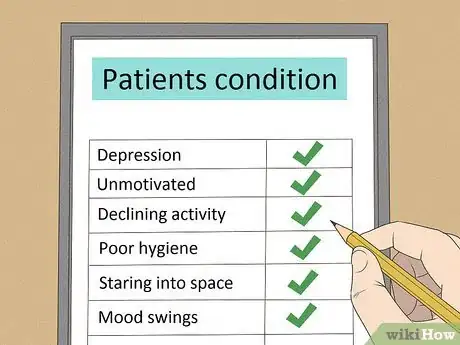
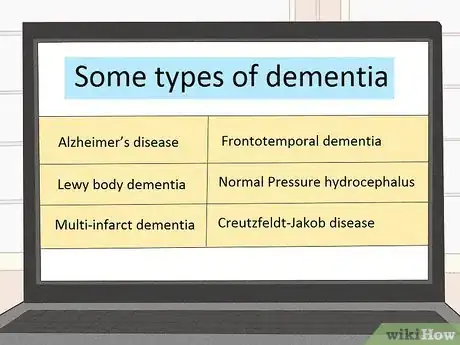


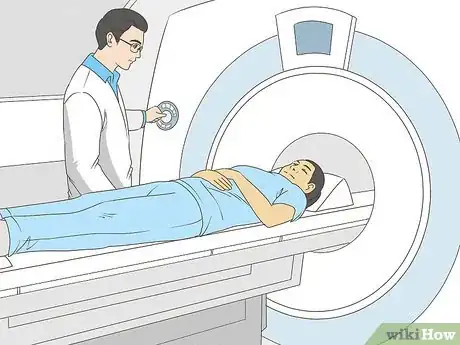

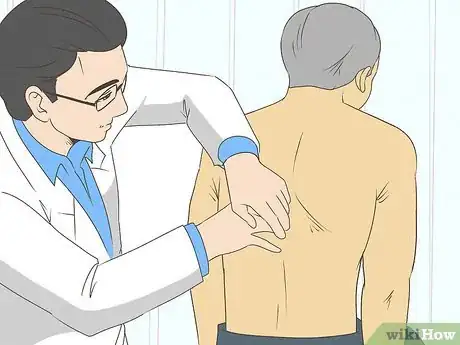

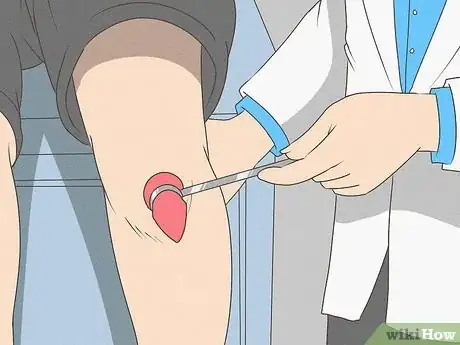
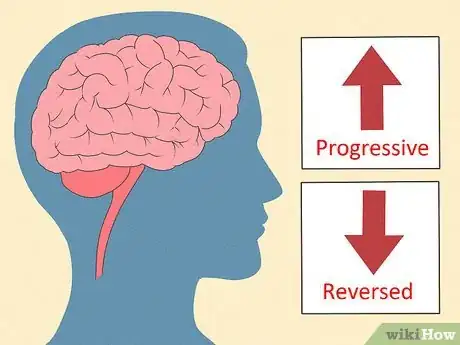






















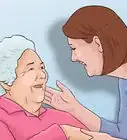






































Medical Disclaimer
The content of this article is not intended to be a substitute for professional medical advice, examination, diagnosis, or treatment. You should always contact your doctor or other qualified healthcare professional before starting, changing, or stopping any kind of health treatment.
Read More...